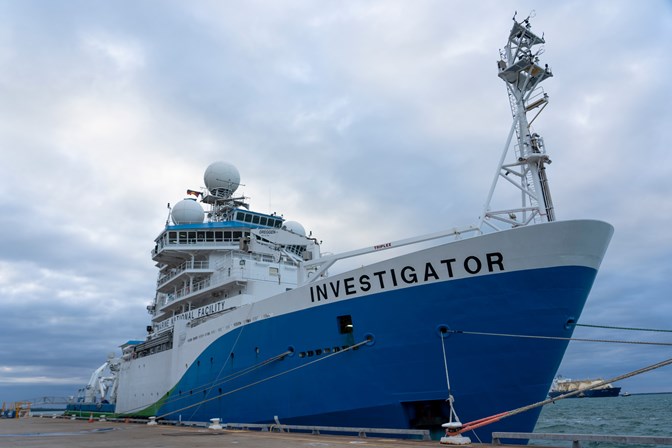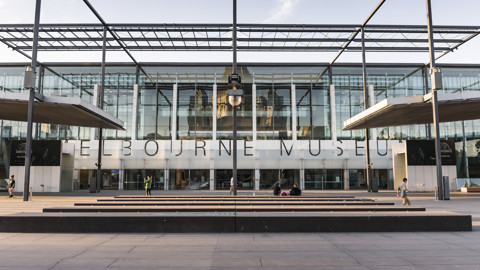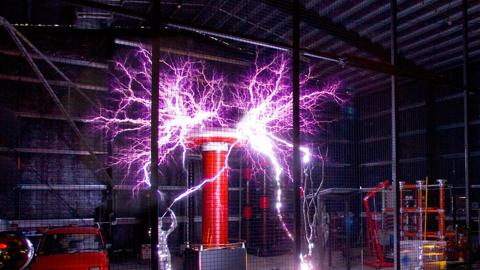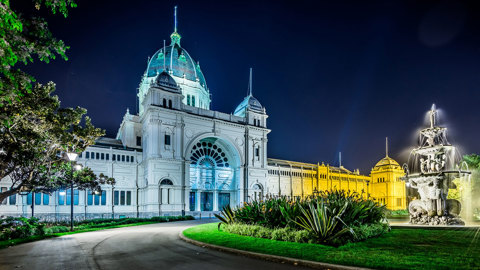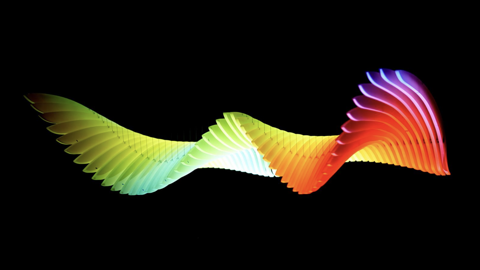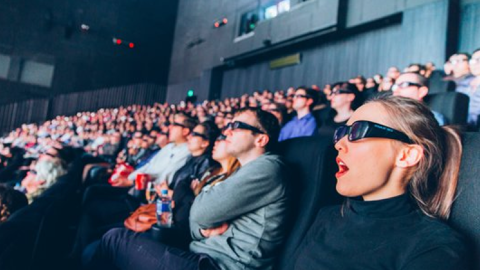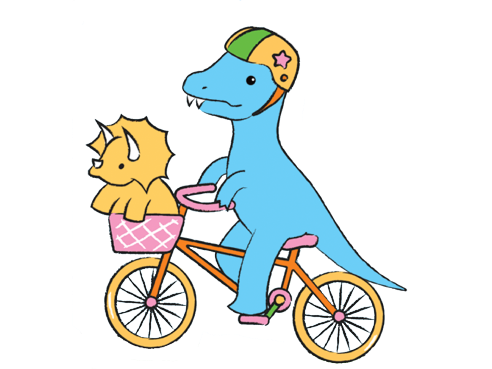Museums Victoria leads world-first research voyage in the Indian Ocean Territories
Voyage to the unknown
A team of scientists led by Museums Victoria will embark on a world-first deep-sea research voyage exploring mysterious, vast undersea mountains and animal inhabitants in the remote waters of Christmas and Cocos (Keeling) Islands.
Investigating the IOT (Indian Ocean Territories), a 45 day, 13,000km voyage on ocean research vessel RV Investigator, operated by Australia’s national science agency, CSIRO, departs Darwin today for the remote waters of Christmas Island and the Cocos (Keeling) Islands.
Led by Museums Victoria, in collaboration with Parks Australia, CSIRO and a team of partner museums and universities, the biodiversity of these remote waters will be explored for the first time, and scientists expect to discover many new deep-sea species. Outcomes of the voyage will provide scientific data and information to support the implementation of new marine parks in Australia’s Indian Ocean Territories recently announced by the Commonwealth Minister for the Environment, the Hon Sussan Ley MP, helping to protect an area of up to 740,000 square kilometres.
Parks Australia Acting Director of National Parks, Jody Swirepik said the voyage would also include an outreach team from Bush Blitz.
'Known for biodiversity surveys on land, Bush Blitz will be onboard to conduct their first completely underwater survey and will help share discoveries with school groups and the general public,’ Ms Swirepik said.
Voyage Chief Scientist Dr Tim O’Hara, Museums Victoria’s senior curator of marine invertebrates, is a veteran deep-sea researcher. He explains that while there are not too many places in Australia that are totally unexplored, we know almost nothing about the secluded underwater mountains and ridges surrounding the Christmas and Cocos (Keeling) Islands.
‘We know the region is covered with massive seamounts formed during the dinosaur era and we know the region sits at a critical juncture between the Pacific and Indian Oceans. We are really excited about the prospect of discovering new species, perhaps even new branches of the tree of life, which until now have remained hidden beneath the waves in this unexplored region,’ explains Dr O’Hara.
‘Surrounding the islands of Christmas and Cocos (Keeling) are a series of ancient underwater mountains and ridges—extinct volcanos which formed 140-50 million years ago. No one has seen these isolated areas before, we have no maps of them and no knowledge of what lives there, and this voyage will provide world-first baseline data of these unknown marine environments and their inhabitants. This research will support plans for new marine parks for the region.’
The research team will use a high-tech multi-beam sonar to map the structure of the seafloor, and cameras, nets and sleds to sample habitats from 60 metres all the way down to 5500 metre depths. The voyage will result in the description of new species from specimens added to the Museums Victoria State Collection and other national biological collections.
Director and CEO of Museums Victoria, Lynley Crosswell, said that the undersea world of the Indian Ocean Territories holds immense value to island communities and the Australian public.
‘The research outcomes from this voyage will be invaluable to our understanding of Australia’s deep-sea environments and the impact humans are having on them. This type of field research, delivered with our partner organisations, is enormously important to protecting our unique biodiversity and creating sustainable futures.’
Investigating the IOT follows the Sampling the Abyss voyage in 2017, also led by Dr O’Hara and supported by CSIRO Marine National Facility and NESP Marine Biodiversity Hub. It was the first dedicated expedition to explore the biodiversity of Australian abyssal waters.
Dr Tara Martin, Facilities Program Director of the CSIRO Marine National Facility, said the voyage demonstrates the great capability that RV Investigator provides Australia for marine research in our region.
‘In addition to these biological studies, the advanced sonar capabilities of RV Investigator will be used to produce new high-resolution maps of the seafloor in the region, which will be vital information for establishing and managing the IOT marine parks,’ said Dr Martin.
The voyage will involve collaboration between some of Australia’s most renowned deep-sea scientists and research institutions including CSIRO, Australian National Fish Collection, Australian Museum, Western Australian Museum, South Australian Museum, James Cook University, University of the Sunshine Coast and University of Tasmania. The research has been made possible through a grant of sea time on RV Investigator from the CSIRO Marine National Facility.
RV Investigator will set sail from Darwin on 30 June 2021 to travel to Christmas and Cocos (Keeling) Island Territories before returning to Fremantle (Western Australia) on 13 August 2021.
Quote attributable to Dr Tim O’Hara Chief Scientist and Senior Curator, Marine Invertebrates at Museums Victoria:
‘The data gathered on this trip will provide greater understanding Australia’s deep-sea habitats, their biodiversity and the ecological processes that sustain them. This will be crucial in conservation and future management strategies, working towards protecting these isolated areas from the impacts of climate change, pollution and other human activity,’ says Dr O’Hara.
Quote attributable to Dr Tara Martin, Facilities Program Director of the CSIRO Marine National Facility:
‘This is an epic voyage to study marine life around these remote tropical islands and those on board will conduct more than 200 biodiversity surveys, including deep-ocean surveys of life at abyssal depths more than 5500 metres below the surface,’ says Dr Martin.
Quote attributable to Jody Swirepik, Acting Director of National Parks, Parks Australia:
‘On its way to the Indian Ocean Territories, the RV Investigator will be transiting through three relatively unexplored Australian Marine Parks – the Oceanic Shoals Marine Park, the Argo-Rowley Marine Park. Finally on the way home, the voyage will map and travel through the Abrolhos Marine Park.’
‘The voyage will provide valuable insights into the remote and pristine waters of the Indian Ocean Territories as we take steps to create new marine parks in the area in collaboration with local communities and other stakeholders.’
Interviews, images, video interviews, vision and further information is available.
Video interviews are available with:
- Dr Tim O’Hara, Chief Scientist and Senior Curator, Marine Invertebrates at Museums Victoria
- Dr Tara Martin, Facilities Program Director, Marine National Facility, CSIRO
